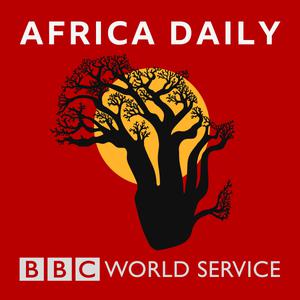
Africa Daily
BBC
One question to wake up to every weekday morning. One story from Africa, for Africa. Alan Kasujja takes a deep dive into the news shaping the continent. Ready by early morning, five days a week, Monday to Friday.
- 19 minutes 40 secondsThirty years later, have black and white South Africans forgiven each other?
“If I have my money, I have my assets, I have my farms, my houses, my cars, I have everything I need, I don’t need to be friendly with any white person” – Sandile Swana, former freedom fighter.
In 1948, the National Party came into power in South Africa and introduced apartheid, a system that segregated society along racial lines. Black people were not allowed to share toilets, beaches, theatres and other public facilities with their white counterparts.
In the decades that followed, the black majority rose up against the system and engaged in various political campaigns. Many activists - including Nelson Mandela, Robert Sobukwe, Walter Sisulu and Ahmed Kathrada - were incarcerated, while others fled to neighbouring countries. But after years of pressure on the National Party government, which included sanctions and international sports boycotts, apartheid collapsed. On the 27th of April 1994, the nation voted in its first democratic election.
So 30 years since independence, our presenter Mpho Lakaje sits down with two people who were on either side of the political divide: former freedom fighter Sandie Swana and apartheid-era policeman Lourens Groenewald.
So have black and white South Africans truly forgiven each other since those ugly days?
26 April 2024, 1:00 am - 19 minutes 38 seconds30 years on, have black South Africans got economic justice?
“It feels like a black man deserves the worst. The poor are getting poorer while the rich are getting richer. I don’t know how things will change” – Alexandra resident, Vusi Mbeye. On the 27th of April 1994, millions of South Africans voted in their country’s very first democratic election. During white minority rule, black people were not allowed to vote.
Nelson Mandela’s African National Congress won that election and then introduced policies like Affirmative Action and Black Economic Empowerment. In addition, many black students received financial aid from the government and private companies, to further their university or college studies. All these measures were meant to correct the economic injustices of the past. But 30 years after the fall of apartheid, have black South Africans experienced meaningful economic freedom?
Africa Daily presenter Mpho Lakaje, who is himself a black South African, sits down with two men who were both born in Alexandra township: street vendor Vusi Mbeye and Theo Baloyi, a wealthy businessman. He also visits political analyst Khaya Sithole.
25 April 2024, 1:00 am - 17 minutes 36 secondsWill Togo's political rollercoaster reach a resolution?
Togo's President Faure Gnassingbé's proposal to change the constitution has ignited a fierce debate in the country. Some say it's a power grab disguised as reform, while others insist it's a step towards a more democratic future.
The reforms aim to switch Togo from a presidential to a parliamentary system, but critics worry it will only prolong the Gnassingbé family's rule. Helping to keep him in power until 2031 and potentially beyond. President Gnassingbé came to power in 2005 after the death of his father, who had been president since 1967.
Protests have been banned and elections postponed- they are now set to take place on Monday 29th April. It’s all led to heightened tension and concerns about the country's political future.
Africa Daily’s Mpho Lakaje spoke to the BBC’s Nicolas Negoce about the future of politics in Togo.
24 April 2024, 1:00 am - 15 minutes 28 secondsWhat is the Nigerian government doing to tackle insecurity?
Earlier this month we marked the 10th anniversary of the kidnapping of the Chibok girls.
It was one of the first mass kidnappings of children witnessed in Nigeria. In 2014, 276 girls were abducted from their school by militants from Chibok, a town in the country’s north east.
Over the past 10 years, mass abductions and kidnappings have become a common occurrence in Nigeria.
So what is the government doing to get a handle on security?
In today’s Africa Daily, Alan Kasujja speaks to Mohammed Idris, Nigeria’s Minister of Information and National Orientation.
23 April 2024, 1:00 am - 21 minutes 23 seconds100 Influential Africans – how is Ibrahima Cheikh Diong trying to shape Africa?
“Development is all about leadership. You can get all the resources in the world, you can get all the best human capital… but if the leadership is not there you can’t make the best of the resources you have and eventually move your country forward.”
Ibrahima Cheikh Diong is UN-Assistant Secretary General and Director General of the African Union specialized agency “the African Risk Capacity Group” or ARC, which works with governments to help them deal with climate related disasters.
But in a varied career, he’s also been a member of the Senegalese government and worked for the World Bank, as a senior banker and in management consultancy. And he even speaks Mandarin as well as French and English thanks to his student days in China.
But he says if he had to best describe himself he’d say he was ‘an African who cares about Africa and wants to make a difference in Africa’.
This is Alan’s second conversation with people included – like himself – in New African Magazine’s 100 Influential Africans list for this year.
22 April 2024, 1:00 am - 16 minutes 10 secondsAre new banknotes the ‘golden answer’ for Zimbabwe’s currency woes?
You’ve gone to the grocery store and bought your week’s supplies… so can you imagine receiving your change in sweets, chocolates and other small items?
That’s the situation in Zimbabwe where a shortage of US dollars – and a plummeting Zimbabwean dollar – has now led the government to introduce a new currency pegged to gold.
The Zimbabwean dollar has already lost three quarters of its value this year.
But will this latest move work any better than other attempts by the government to stabilise the economy in the past?
19 April 2024, 1:00 am - 19 minutes 22 secondsWhy does racism against black players persist in Spanish football?
Earlier this month, the goalkeeper of Spanish third-tier team, Rayo Majadahonda, went into the stands to confront a fan who allegedly racially abused him. Cheikh Sarr, a black man originally from Senegal, said he heard an elderly man join others as they made monkey gestures. But what took many people by surprise was the Spanish football federation’s decision to slap the player with a two-match ban for the confrontation. It’s not the first time European football has been rocked by a racism scandal. Last year, seven people were arrested for a similar incident against Real Madrid and Brazilian star Vinicius Junior. Samuel Eto’o, who is now the Cameroonian football federation’s president said, he too faced discrimination when he was still playing for Barcelona in Spain. Nigeria’s Samuel Chukwueze, Ghana’s Iñaki Williams and Mouctar Diakhaby of Guinea, are among European-based African players who’ve also faced racism. So, what will it take to end racism in European football? Presenter: Alan Kasujja Guests: Evelyn Watta, vice president of the International Sports Press Association and veteran British-Nigerian broadcaster Osasu Obayiuwana
18 April 2024, 1:00 am - 12 minutes 17 secondsCould West Africa’s cocoa crisis spell disaster for farmers and chocolate lovers?
Ghana and Ivory Coast, responsible for over 60% of the world's cocoa supply, are suffering from catastrophic harvests. Illegal gold mining, climate change and a devastating virus have formed a perfect storm. Over 590,000 hectares of cocoa plantations have been affected according to Ghana’s cocoa marketing board Cocobod.
Meanwhile, shoppers who indulged in Easter treats in the United States found the cost of chocolate had increased by more than 10% on last year, according to data from research firm NielsenIQ.
BBC Africa Daily’s Alan Kasujja spoke to BBC's Nicolas Negoce about the specific challenges faced by cocoa farmers in the region.
17 April 2024, 1:00 am - 19 minutes 33 secondsWhat impact is Sudan’s war having on neighbouring countries?
Yesterday, Africa Daily heard from two Sudanese men about how a year of war has forever changed their lives.
But the impact is also being felt beyond Sudan’s borders: South Sudan’s oil industry – its main income generator – has been heavily impacted because routes to the coast for export have been cut off. Chad and South Sudan are hosting hundreds of thousands of refugees each. And in border areas, armed groups have been growing more active and refugees report extortion, brutal attacks and murder.
In response, many regional leaders have attempted to bring the leaders of the two warring parties together for talks: military chief General Abdel-Fattah Burhan and General Mohammed Hamdan Dagalo, the commander of Rapid Support Forces, who is more commonly known as Hemedti. But mistakes and perceived insults mean little has been achieved from their efforts.
So can African countries do anything to stop the conflict?
16 April 2024, 1:00 am - 16 minutes 13 secondsWhat’s life like for the Sudanese one year after war broke out?
On April 15th last year, fighting broke out between the leaders of the Sudanese Armed Forces (SAF) and a powerful paramilitary group know as the Rapid Support Forces (RSF). As the conflict escalated millions fled for their lives. According to the United Nations World Food Programme, around 18 million people in Sudan are facing food insecurity – a situation likely to worsen because of failed harvests. In Darfur, now mostly in the hands of the RSF, whole cities have emptied out as civilians faced targeted attacks and rapes based on their ethnic group, and there have been countless atrocities committed by both sides throughout the country. Today on Africa Daily, Alan Kasujja speaks to a man who has just been reunited with his elderly mother and younger brother after they crossed the desert to reach him in Egypt, and to the BBC’s Mohanad Hashim, who is himself Sudanese.
15 April 2024, 1:00 am - 24 minutes 15 secondsWhat is it like to be the victim of a kidnapping in Nigeria?
This month marks ten years since the kidnapping of the Chibok girls in north eastern Nigeria when militants abducted nearly 300 girls. Most of the girls have either been freed or escaped but dozens remain unaccounted.
In the years since, kidnapping for ransom - for profit- by criminal gangs has also become the norm, even in places like trains or in the capital Abuja, which used to be considered relatively safe.
In today’s episode Alan Kasujja speaks to a woman who was kidnapped twice on her way home from work, and hears more about the approach by Nigerian police to kidnappings.
Some listeners may find some of the descriptions of kidnapping in this episode distressing.
12 April 2024, 1:00 am - More Episodes? Get the App
Your feedback is valuable to us. Should you encounter any bugs, glitches, lack of functionality or other problems, please email us on [email protected] or join Moon.FM Telegram Group where you can talk directly to the dev team who are happy to answer any queries.
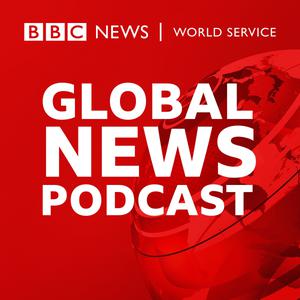 Global News Podcast
Global News Podcast
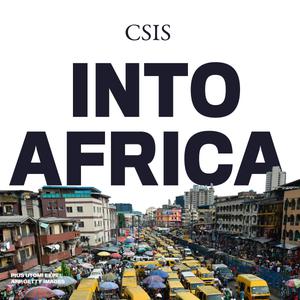 Into Africa
Into Africa
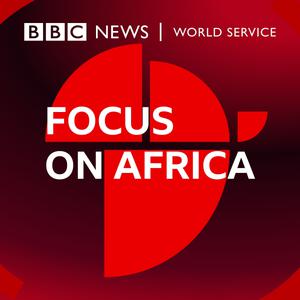 Focus on Africa
Focus on Africa
 Newshour
Newshour
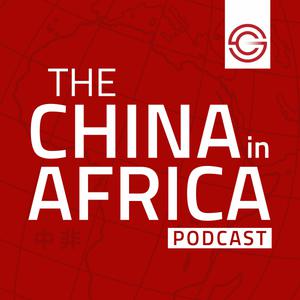 The China in Africa Podcast
The China in Africa Podcast
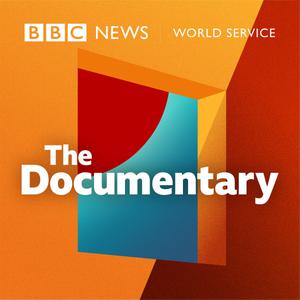 The Documentary Podcast – including the Three Million mini-series
The Documentary Podcast – including the Three Million mini-series